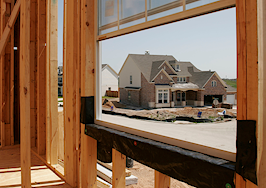A new program launched by Zillow aims to help renters build credit through the transaction they begin every month with — their rent.
The new rent reporting feature will allow renters who pay their rent through Zillow to have their on-time payments reported to a major credit bureau, giving renters who may have been deprived of such opportunities previously a way to build credit, the company announced on Wednesday.
“Every on-time rent payment is a testament to a renter’s reliability, yet it’s often overlooked in credit reports, and we want to change that,” said Michael Sherman, vice president of Zillow Rentals. “This new program is all about acknowledging and supporting consistent financial habits. It ensures renters’ largest expense can now work in their favor and potentially help them on their path to finding and securing a place they can call home.”
Renters who opt in will have their on-time rental payments reported to the major credit bureau Experian. Late payments, defined as payments more than 30 days overdue, will not be reported.
Enhancing one’s credit history is an essential step in unlocking broader financial opportunities such as credit cards, better rates for home purchases, future rentals and easier loan approvals.
The program was launched with the acknowledgment of a significant gap in credit reporting. While renters in the United States spend hundreds of billions of dollars on rent each year, most of these hefty payments go unreported. Approximately 26 million Americans are currently “credit invisible” according to the Consumer Financial Protection Bureau, meaning they lack any recorded credit history.
The divide is particularly prevalent in Black communities, where a lack of access to credit locks many residents out from homeownership opportunities and traps them into a cycle of paying more for rent than they would for a mortgage — a holdover from racist redlining policies of the 20th century. In New Orleans, for example, the median tenant in a credit-insecure area spends 77.5 percent of their income on rent, as opposed to 28.6 percent of their income for a typical mortgage, according to Zillow data.













